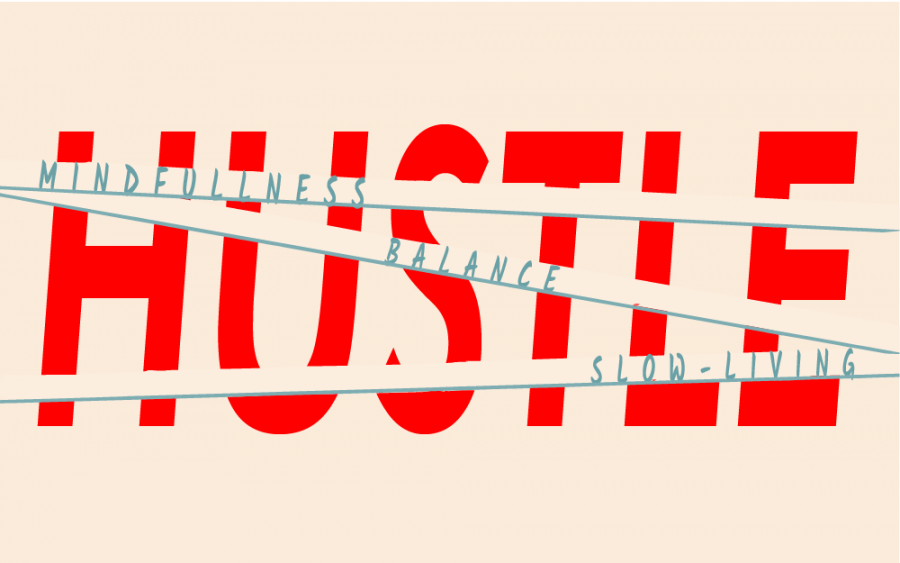Hard work is undeniably essential to achieving goals. If one puts in the effort, anything can manifest in his or her life.
This truth carried me as I put my best foot forward in school, sports and personal goals; however, it’s easy to misinterpret this mindset for an “all or nothing” attitude which can be seen depicted in “hustle culture.”
According to Oxford Languages, “hustle” means “to force (someone) to move hurriedly or unceremoniously in a specified direction,” so in the context of the hustle culture we are familiar with today, it can be said that society has convinced us to value output and has programmed us to aspire for a life of nonstop labor.
I’m not opposed to productivity itself. I think it’s a necessary component of our economy. However, in terms of individual productivity, it can become toxic.
Measuring a person’s worth based on how much they accomplish in a single day causes more problems than what meets the eye. The term “workaholic” didn’t just appear out of thin air, and “hustle culture” continues to produce them every day. Burnout, depression and anxiety can all be caused by the obsession with work and productivity.
As someone who has tried to emulate the grind and hustle lifestyle at a young age, I can attest to the feeling of unworthiness when I did not intentionally schedule my day to the minute with tasks or failed to complete a to-do list.
This fast-paced mindset has sparked counter-cultural movements such as the slow living movement which promotes balance and emphasizes mindfulness.
The slow living movement was inspired by the slow cooking movement — originated in Italy during the 1980s. It promoted quality ingredients, local production and sustainability. These values naturally seeped into the slow living movement as the world began to become more “fast” with restaurants, work and family life.
Slow living intrigued me because it offered a healthy alternative to the hustle culture I desperately wanted to escape. I was tired of feeling like a robot whose only purpose was to wake up, work, eat (if I had the time) and repeat the process the next day.
Embracing a slower lifestyle isn’t an excuse to dismiss hard work. Instead, it provides a more holistic way to live. It shifts the emphasis away from work and towards living.
My work ethic is still intact and isn’t going anywhere but my mindset has shifted from rushing through life to slowing down, so I can take time to smell the roses and you should too.
Aaliyah Alexander is a junior studying journalism and international studies. Follow her on Twitter @aaliyahdanyell










